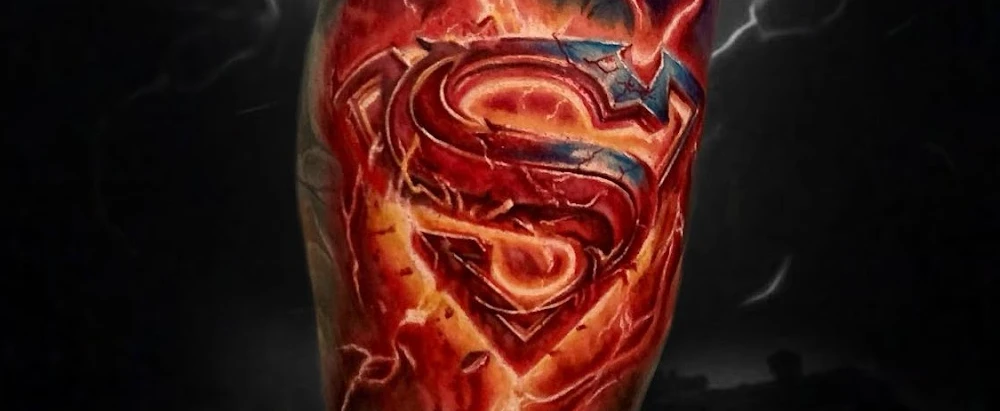Inked Mag Staff
November 18th, 2024
Hooked on Ink
Tattoo enthusiasts often claim addiction, but true addiction involves chemical and psychological dependence. Obsessive love for tattoos is not the same as addiction.
By Mads Wedel Kristensen, Sociologist and Podcaster, @The_Tattoo_Sociologist
If you ever had ink imprinted on your body and promptly went in for a second, third, or more, you may have asked yourself, “Am I addicted to tattoos?” You may even assert your addiction to others. However, in a clinical and social scientific sense, you are not. But it’s more complicated than that.
It is true that in a chemical, clinical, and social scientific sense, what you may see as a tattoo addiction is actually something else, and haphazardly using the term “addiction” can cause some confusion that is not without its share of potential confusion and harm.

A Misinterpretation?
Clinically, addiction, or substance abuse disorder, has an entire checklist created by the American Psychiatric Association (APA) with the criteria used to diagnose patients. These criteria range from the chemical to the more psychological and are found in the latest version of the handbook, “Diagnostic and Statistical Manual of Mental Disorders, Fifth Edition,” or DSM-5.
There are many criteria by which addiction is diagnosed and defined, both within the manual and the wider research. Verywellmind.com summarized APA’s guidelines for diagnosing patients with substance abuse disorder with a list of criteria that is simultaneously broad in scope and precise. The DSM-5 criteria are both psychosocial and chemical and indicate that one must suffer multiple of these benchmarks before being determined as a bona fide addiction.
The criteria focus on everything, from the amount and the manner of consumption to time spent acquiring one’s “substance” of choice, to cravings and withdrawal symptoms, and the strain it can put on one’s social interactions and relationships. The common denominator throughout their list of criteria is a grave loss of self-control as well as a willingness to ignore harm to oneself and others, either physically or mentally, risking your own health and social relationships, to maintain your consumption.
Some of these criteria, especially the ones based more on the chemical effects of a substance that causes some of these symptoms, are simply not there when looking at tattoos. There are no recorded incidents of any form of withdrawal symptoms regarding tattoos, no matter how captivated someone is or how often they get a new tattoo. Nor do tattoos require you to get more and more ink to get the desired effect, no matter how you feel about it. With other substances, such as alcohol, you need more because your body builds a tolerance and thus you no longer get the same buzz from the same amount. This does not occur with tattoos.
“As a heavily tattooed person adorned with a 600-hour bodysuit, I get asked all the time if someone can have a tattoo addiction. As a psychiatrist relying on the DSM-5, the answer is no,” said Harvard-educated psychiatrist and tattoo lover Dr. Matt Davis, also known as the Inked Shrink. “We currently lack empirical evidence and agreed-upon clinical criteria to support ‘behavioral addictions’ like sex, shopping, or tattoos.
“More importantly, even the most ardent tattoo enthusiast does not have a physical dependence in getting inked; they wouldn’t risk homelessness, losing custody of their children, serious legal consequences, or knowingly use a dirty needle to get a tattoo,” Davis explained. “These are all things people with bona fide addictions might do as the substance becomes the only salient thing in their life. To call it a ‘tattoo addiction’ does a disservice to those among us who are afflicted with an actual addiction.”
A False Framework?
To dive deeper into an explanation of why people may claim to have an addiction to tattoos, a more sociological perspective needs to be explored. Indeed, despite how accepted and popular tattoos are today, many of us have ingrained into us during our upbringing the idea that tattoos are taboo and undesirable. For many people, that is the reality they grow up with, even if it does not come from their family, they will encounter it from the rest of society. This plays no small part in why people may want to claim addiction. Of course, more research is needed on this topic, within sociology and psychology.

This inherent reality can indeed become a valid excuse for why we, despite the stigma and possible social risks, still get tattoos, including visible tattoos — we cannot help it. However, it is not an addiction and, except for a few rare examples where there may indeed be other underlying mental health conditions, people are not selling their cars, mortgaging their houses, or gambling their money dry to get a new tattoo. Nor would most skimp out on the quality of their artwork because they immediately need a tattoo, regardless of who does it or where.
Despite what tattoo enthusiasts may think at times, people are more cautious, and even a spontaneous tattoo is often done because the person had money and the “right” opportunity presented itself, not because of addictive pathology.
As Davis explained, how people appropriate the word addiction in the context of tattoos can be a problem as it can remove needed attention from the people who are suffering from real tangible addictions and substance abuse and need help and assistance. Similar to how people should not call themselves depressed when they are sad, people should think twice about calling themselves addicted. In reality, many people are shocked about how obsessed they’ve become with tattoos and how far they may have gone on their bodies, especially compared to their original intentions when they got their first tattoo. In truth, you are not addicted, you just love tattoos. A lot.
For more articles, check them out here!
Editor's Picks
Bridging Classical Art and Modern Tattooing
Esteban Rodriguez brings the discipline of classical fine art to the living canvas of skin, creating hyper-realistic tattoos that merge technical mastery with emotional depth.
Show Your Ink Fashions Brings Custom Style to Tattoo Culture
Show Your Ink Fashions creates custom shirts designed to showcase your tattoos as wearable art, blending fashion with personal expression.
The Ultimate “Superman” Tattoo Roundup: Just in Time for Superman’s Return to Screens
With Superman’s big return to theaters, fans are revisiting some of the most iconic ink inspired by the Man of Steel.
















